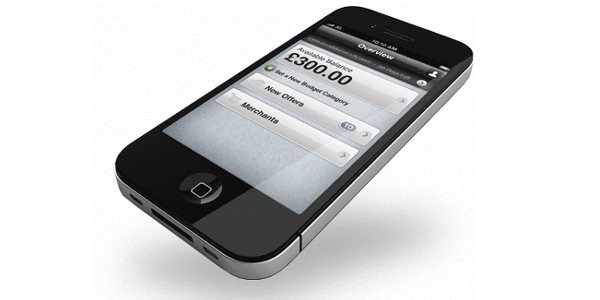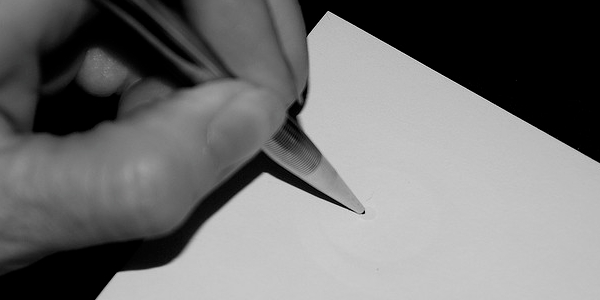For many people, the human memory is just not good enough. We might think we have good memories, even photographic memories, but our memories can fail us. We tend to have only a fleeting association with the facts in our head. In order to develop a deeper connection with them, we need them in written form. While this is important for many aspects of our lives, it is absolutely crucial for our finances!
There was a time when we had a direct connection to our money. When we spent something, we either wrote a cheque, and therefore had to balance our chequebooks, or paid in cash. Paying in cash means handing over something physical in exchange for something else, so the connection is much more concrete and easier to remember. In modern society, though, we’re accustomed to swiping a card and forgetting. It’s a huge issue for our personal financial situations.
The solution is exceedingly simple: write it down! Here are three things that every young person should write down to help keep track of their finances. It will help us develop deeper connections with our money and helps us gain awareness, which is the only way we can make changes. Writing down these three things is the first step to financial awareness.
1. What You Spend
Every single time you make a financial transaction, write it down! Even if you pay with a credit card, make sure you log it. This can be on a small pad and paper, or it can be on a smartphone. A smartphone, if available, is the superior option, because our cell phones go with us everywhere. There is no excuse, then, not to write down every transaction.
This is the first step to financial awareness. By writing down your expenses, you’re recreating a connection between you and your money. Where you would once swipe and forget, now you are making an imprinted record of the transaction. Beyond making you aware of what you spend, it has the added benefit of perhaps making you think twice before spending. After all, you might not spend that $5 at the store if you have to face the music afterwards.
2. Your Recurring Expenses
While you’re keeping track of your expenses, you should also make note of any regularly occurring transactions. Those include rent, utilities, cable bill, and any other weekly, monthly, or quarterly payments. Keeping track of these is essential for creating budgets. It’s much easier to create an accurate budget if you have a long-running record of your recurring expenses. That way you can form an average, so it affects you less when you go a bit over or a bit under in any given month.
Don’t forget those recurring online subscriptions either! Many of these come right out of our bank accounts every month, so it’s easy to lose track of them. For instance, I don’t even think about paying Netflix each month, since the money is automatically debited from my account. Yet that’s still $20 I’m parting with. The same goes for things such as domain name renewals. Those are often automatic, so it’s important to write them down so you become more aware of them when they happen.
Writing down your recurring expense also imbues you with a sense of what you actually earn. Hearing your salary number is nice, but you only make a portion of that due to withheld taxes. Your pay-check number is nicer, but much of that money goes towards these recurring expenses. Subtracting them out right away, then, gives you a better idea of your actual, usable income.
3. Your Biggest Expenses
After you’ve been writing down your expenses for a bit, start a new list for your largest ones. For example, if you travel frequently, make a separate list for all the flights and hotels you pay for. If you are a musician, write down your bigger expenses, such as guitars and amps. Basically, you’re looking for expenses that are either more than a third of any given pay-check, or expenses that add up quickly.
Why this separate list? Our biggest expenses are usually the ones we can reduce the most. Again, if you’re a traveller and you need to cut expenses, you can search around for cheaper flights or other accommodations. (Or, you know, you could cut out some of the travel.) If you’re a musician you can scale back on the gear you buy. Since these are areas where we spend a disproportional amount of our income, it’s easier to bring them back into proportion.
Where To Write It Down
As we continue migrating more and more of our lives online, we’ve come to rely on computers as recording devices. When it comes to expenses, this is no different. You can do everything right from your computer, or even easier, from your smartphone. To cover all our bases, here are three easy ways to keep track of all this information;
- Spreadsheet – If you want to track trends and make easy computations, entering your spending data in a spreadsheet is essential. You can create this locally, using software such as Microsoft Excel, and then back it up in the cloud. Google Docs offers a great spreadsheet program that can allow you to access your documents from wherever. That way you can have the same spreadsheet at work and at home.
- Smartphone – We usually associate smartphone’s with costing us money. With the cost of the phone, the monthly service, and all those apps we download, it can get expensive. But you can also use your smartphone to record your expenses. There are many apps that can take care of this function. And, since your smartphone is with you always, there’s no excuse to not write down your transactions as they occur.
- Pen & Paper – John D. Rockefeller used to carry around a simple notebook, in which he’d record all of his transactions. He didn’t have the benefit of modern technology, of course, but it still worked out for him. Considering his success, I submit that it can work for the rest of us, too.
Writing things down does have a magical effect. It brings us awareness that we previously lacked. By writing down all of your expenses and then making sub-lists for recurring expenses and our biggest expenses, we can gain a greater understanding of how we handle our money. It’s with this understanding that we can get our habits under control and get on the road to financial freedom.
But what do you think? Do you have any other tips that help you to manage your money? Please leave your comments below.
___________________________________________________________________
Thank you to my Guest Post Author: Joe Pawlikowski
Joe, the editor of Prepaid Reviews and other blogs, turns 30 this year, and has finally gotten a handle on what it takes to manage money in modern times.
___________________________________________________________________




CommentLuv vs Disqus – Why I Don’t Use CommentLuv!